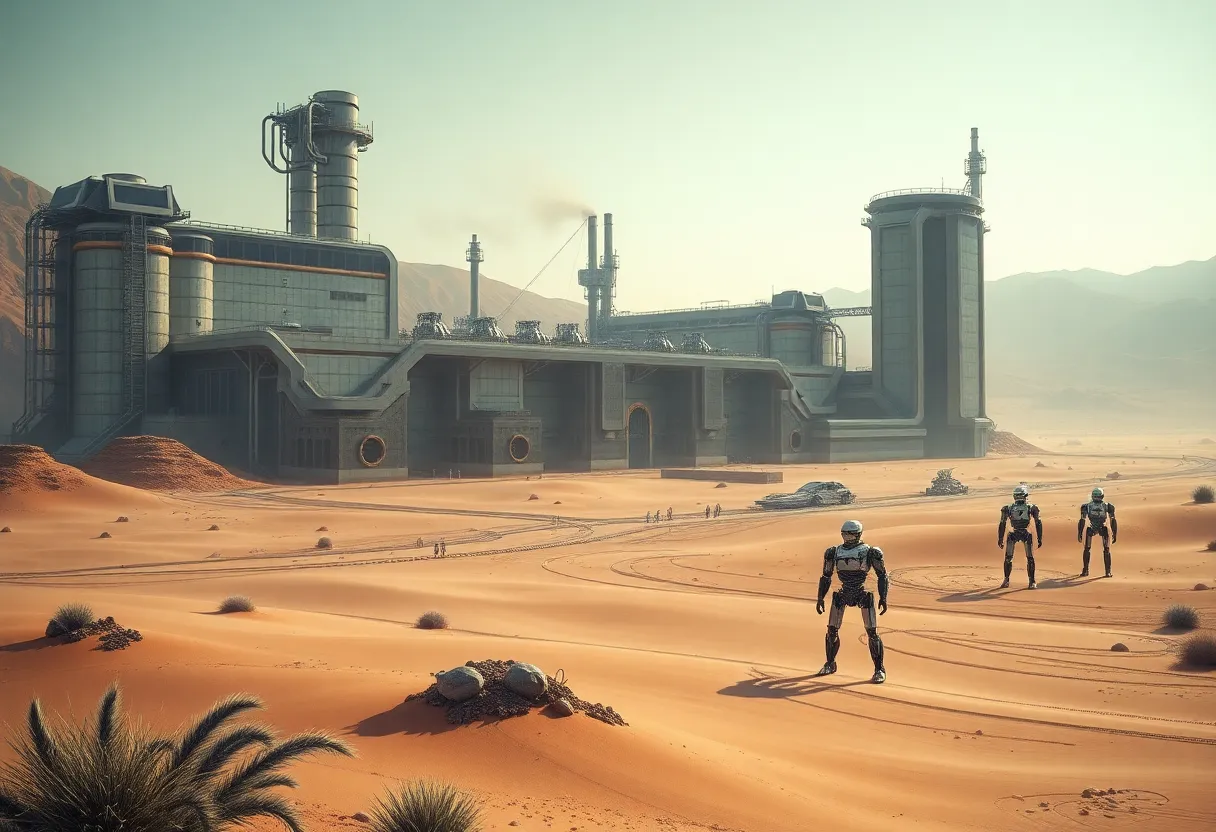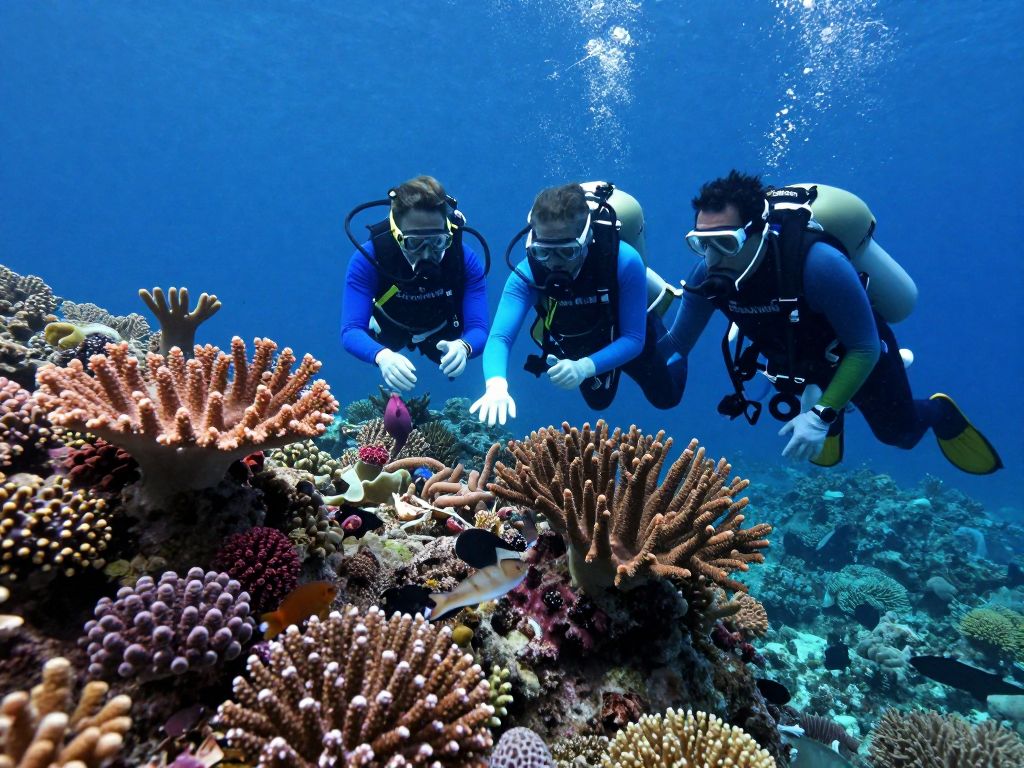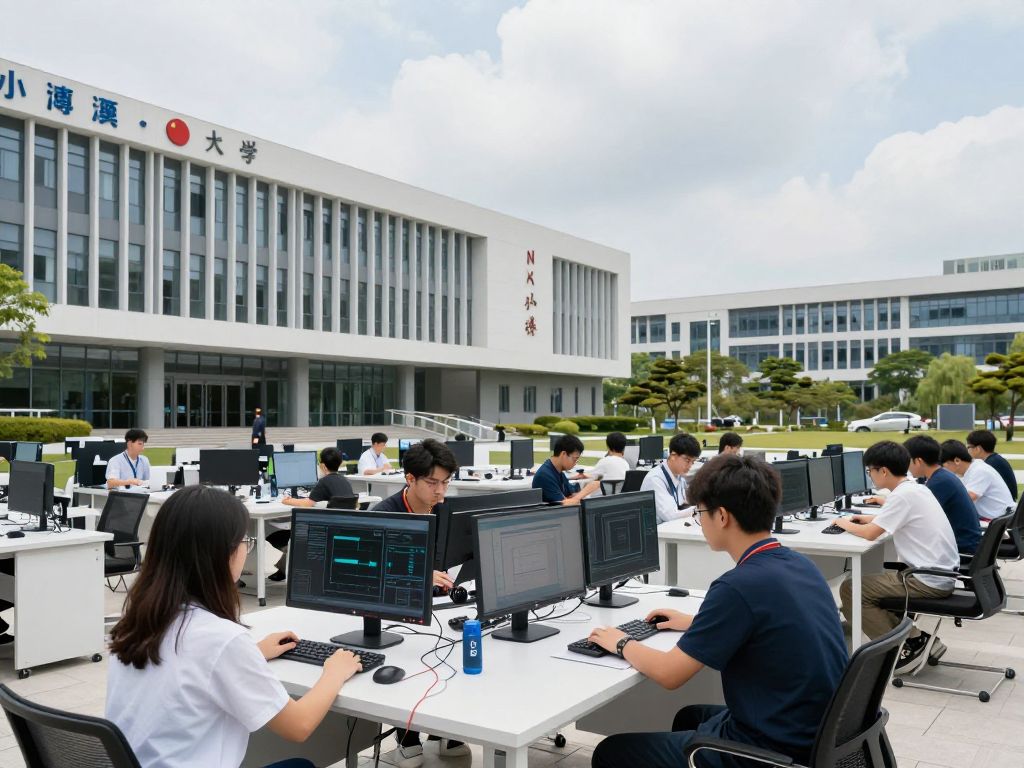News Summary
Arizona is set to host Project Crystal Land, an ambitious $1 trillion industrial complex aimed at manufacturing AI systems and robots. Led by SoftBank Group’s Masayoshi Son, the initiative seeks to restore high-tech manufacturing to the U.S. by collaborating with key industry players, including TSMC and Samsung. The project’s success hinges on governmental support, tax incentives, and partnerships with startups. SoftBank plans to leverage its substantial liquidity to finance this monumental undertaking, positioning Arizona as a leader in advanced technology production.
Arizona is set to become the site of a groundbreaking industrial complex named Project Crystal Land, which is being led by SoftBank Group Corp. founder and CEO Masayoshi Son. This ambitious initiative is projected to cost around $1 trillion and will focus on manufacturing artificial intelligence systems and industrial robots in the United States, offering a significant boost to the country’s high-tech manufacturing sector.
Project Crystal Land aims to return high-tech manufacturing capabilities to U.S. soil by establishing production lines dedicated to developing AI-powered industrial robots. However, the project’s success will likely depend on collaborations with key industry players, governmental support, and the ongoing dialogue with officials at different levels.
SoftBank is reportedly looking to collaborate with Taiwan Semiconductor Manufacturing Co. (TSMC) for this initiative, although the specific roles and interests of TSMC in the partnership have not yet been disclosed. TSMC has already announced plans to invest $165 billion in its U.S. operations, including its existing facility in north Phoenix, which may position it as a valuable ally in Project Crystal Land.
The complex is expected to feature operations from various SoftBank-backed startups that specialize in automation and robotics, alongside major tech corporations such as TSMC and Samsung. Discussions have also been initiated with Samsung Electronics regarding their potential involvement in the project.
Beyond corporate partnerships, the project’s feasibility hinges on the support it receives from both the Trump administration and local Arizona officials, particularly in terms of securing tax incentives for investments in the proposed manufacturing hub. SoftBank has already engaged in conversations with government representatives about potential financial benefits to encourage investment in this significant undertaking.
To finance Project Crystal Land, SoftBank is adopting project-based financing structures, a model commonly utilized for large infrastructure developments. With a liquidity pool of approximately $23 billion and net assets totaling around $176.46 billion as of March, SoftBank appears well-equipped to pursue extensive funding for its various ventures, including this monumental project.
The vision for Project Crystal Land is to emulate the scale and integration found in China’s manufacturing hub in Shenzhen, thereby establishing Arizona as a leading center for advanced technology production in the U.S. The early stages of development indicate that there is a significant level of ambition behind this initiative, yet challenges remain regarding market interest from the private sector and supportive political environments.
As discussions and planning continue, the realization of Project Crystal Land will depend on harmonizing the interests of stakeholders across the public and private sectors, ensuring that the manufacturing of AI and robotic technologies will thrive once again on American soil.
Deeper Dive: News & Info About This Topic
- ABC15
- Wikipedia: Artificial Intelligence
- Bloomberg
- Google Search: Project Crystal Land
- Financial Times
- Encyclopedia Britannica: Robot
- Reuters
- Google News: SoftBank Arizona AI Hub
- Tom’s Hardware

Author: STAFF HERE PHOENIX WRITER
The PHOENIX STAFF WRITER represents the experienced team at HEREPhoenix.com, your go-to source for actionable local news and information in Phoenix, Maricopa County, and beyond. Specializing in "news you can use," we cover essential topics like product reviews for personal and business needs, local business directories, politics, real estate trends, neighborhood insights, and state news affecting the area—with deep expertise drawn from years of dedicated reporting and strong community input, including local press releases and business updates. We deliver top reporting on high-value events such as the Waste Management Phoenix Open, Cactus League Spring Training, and Arizona State Fair. Our coverage extends to key organizations like the Greater Phoenix Chamber of Commerce and Visit Phoenix, plus leading businesses in technology and healthcare that power the local economy such as Intel and Banner Health. As part of the broader HERE network, including HERETucson.com, we provide comprehensive, credible insights into Arizona's dynamic landscape.





